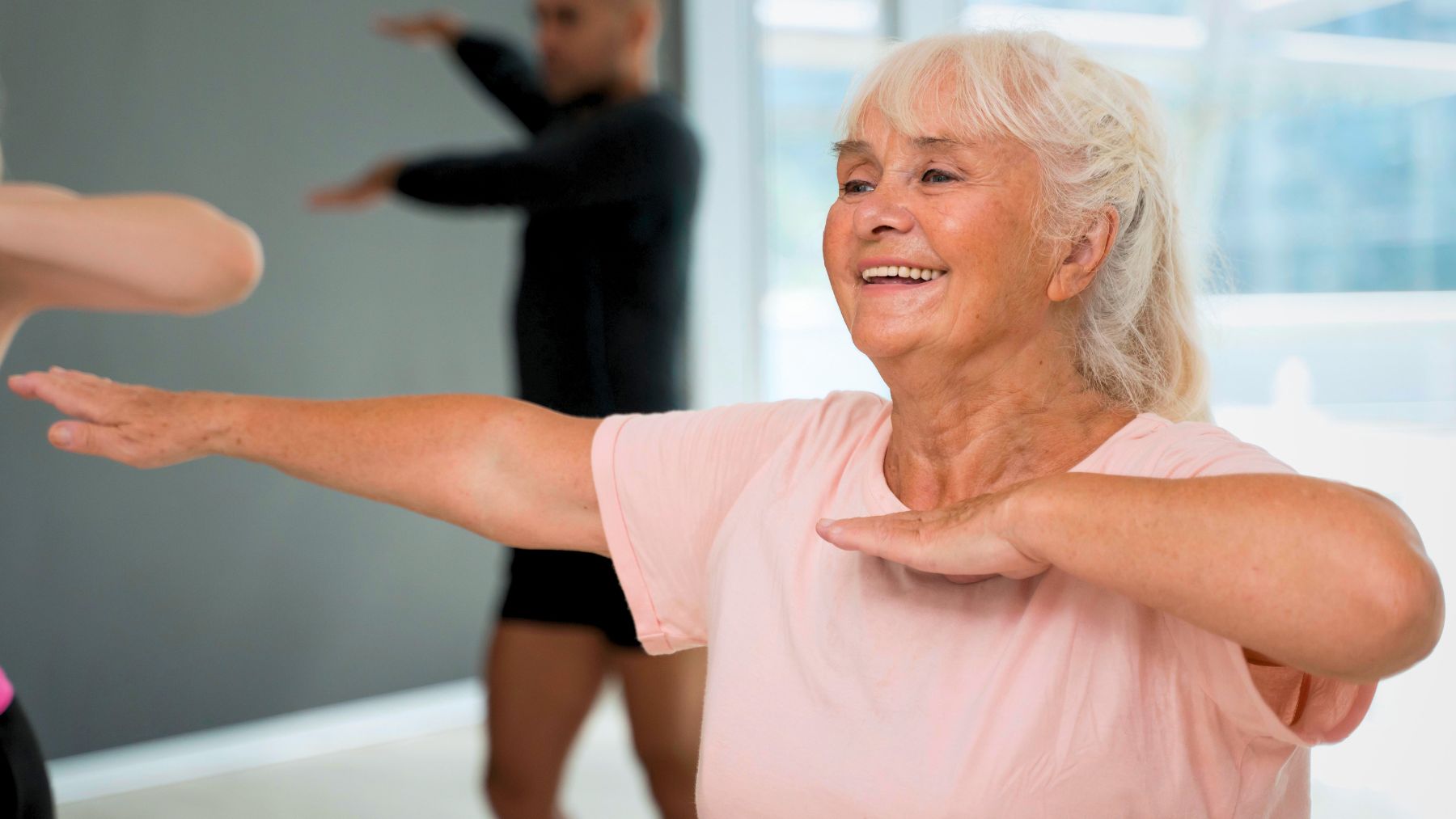Harvard tells us that physical movement can also enhance memory and cognitive function, and although there is not one specific activity that’s best for this, tai chi emerges as an exceptional choice. This gentle exercise combines mindful movement with moderate intensity, promoting sharper thinking and improved recall through increased oxygen flow and deeper stimulation of key brain regions.
Here, we’ll explore the unique benefits of tai chi for the brain. We’ll also provide practical tips for incorporating tai chi—or any moderate physical activity—into your daily routine, so you can enjoy both physical and cognitive benefits during your retirement years. Let’s begin.
Tai chi, an exercise to improve memory after 60
When compared with other aerobic workouts, tai chi offers some unique advantages. Although much research has focused on activities like walking, Harvard experts note that any aerobic movement that increases heart rate provides cognitive perks. However, tai chi stands out because its intricate sequences require mental focus and coordination, strengthening executive skills such as working memory, problem solving, and verbal reasoning.
Tai chi gently raises your heart rate and increases the flow of oxygen-rich blood to the brain. This surge nourishes the hippocampus, the area responsible for forming and consolidating memories. Regular engagement in moderate aerobic exercise, including tai chi, is associated with larger memory centers over time, which can translate into sharper planning, attention, and cognitive agility.
In addition to these direct benefits, tai chi helps reduce inflammation and enhances circulation, which clears metabolic waste from the brain. Improved blood flow not only alleviates stress but also elevates mood, resulting in fewer worries and better mental clarity. It also improves sleep quality, which iscritical for converting short-term memories into long-term storage.
Tips for seniors to get started with physical activity
The key to incorporating regular physical activity into your daily routine is to set achievable goals and choose a form of exercise that feels enjoyable and sustainable. Consider the following practical tips to help you begin your new routine:
- Aim for 150 minutes of moderate activity each week and break your sessions into shorter segments.
- Choose the exercise that best suits you; whether it’s tai chi, walking, swimming, or cycling.
- Establish a clear plan, such as scheduling four 30‑minute sessions each week to meet your goals effectively.
- Keep track of your progress with a simple calendar or a fitness app so you can celebrate every small achievement along the way.
- Build a routine by practicing at the same time each day, which will help turn your exercise into a consistent habit.
- Finally, be patient. It may take around six months to notice significant mental gains, but with persistence, you’ll enhance your brain and physical fitness over time.
Regular moderate aerobic exercise offers seniors over 60 a convenient and effective way to enhance their cognitive health. Whether you choose tai chi for its unique blend of mindful movement and coordination or any other activity that gets your heart pumping, consistent practice can make a difference for your memory, mood, and overall well-being. Start incorporating these habits today, and watch as both your brain and body reap the rewards for years to come.
